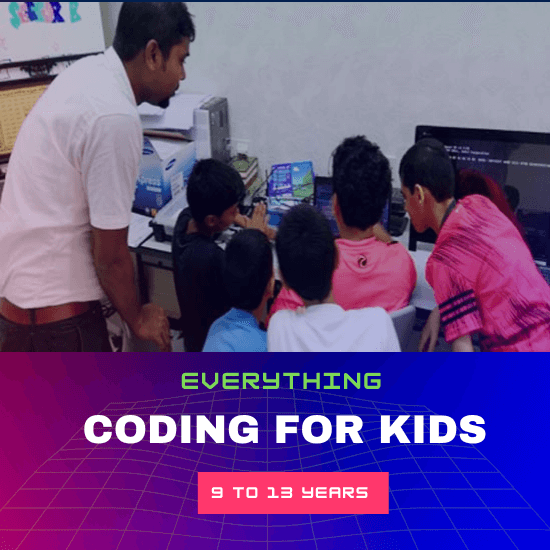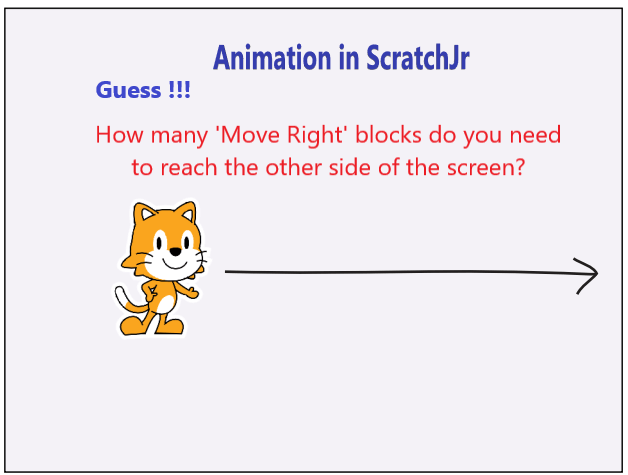Coding, also known as programming, refers to the process of creating instructions that a computer can understand and execute. These instructions, called code, are written in a specific programming language, such as Java, Python, or JavaScript, and are used to create software, apps, websites, and other digital products. Coding involves a combination of logic, problem-solving, and creativity, and is essential to the development of technology in our modern world.
Importance of Coding in Today’s World
Again, Coding has become an increasingly important skill in today’s world, as technology continues to play a critical role in our lives. From smartphones and social media to online shopping and remote work, technology has transformed the way we live and work, and coding is at the heart of this digital revolution. In fact, many of the world’s most successful companies, such as Google, Facebook, and Amazon, were founded by coders and rely heavily on their expertise.
Therefore, Learning to code can have numerous benefits, such as improving problem-solving skills, enhancing creativity, and opening up new career opportunities. Additionally, coding can be a valuable tool for entrepreneurs, allowing them to create and develop their own digital products and services. In short, coding is an essential skill for anyone looking to stay competitive in the 21st century.
Types of Coding
Front-End Development
Front-end development, also known as client-side development, refers to the coding that takes place on the user’s side of a website or application. Front-end developers use HTML, CSS, and JavaScript to create the visual elements and user interfaces that people interact with. This can include everything from buttons and menus to animations and videos. Front-end development is a crucial aspect of website and application design, as it determines how users experience and interact with digital products.
Back-End Development
Back-end development, also known as server-side development, refers to the coding that takes place on the server side of a website or application. Back-end developers use programming languages such as PHP, Python, and Ruby to build the server-side infrastructure that supports a website or application. This can include creating databases, managing user authentication, and handling server requests. Back-end development is important for ensuring that a website or application is secure, scalable, and efficient.
Full-Stack Development
Full-stack development refers to the coding that takes place on both the front-end and back-end of a website or application. Full-stack developers have a comprehensive understanding of both client-side and server-side coding and are able to build end-to-end digital products. This requires proficiency in multiple programming languages and frameworks, as well as a deep understanding of web architecture and infrastructure.
Mobile App Development
Mobile app development refers to the coding that takes place in order to create mobile applications for devices such as smartphones and tablets. Mobile app developers use programming languages such as Swift and Kotlin to create apps for iOS and Android devices respectively. They are responsible for everything from designing the user interface to managing app data and integrating with other services. Mobile app development is a rapidly growing field, as the use of mobile devices continues to increase around the world.
Game Development
Game development refers to the coding that takes place in order to create video games for consoles, computers, and mobile devices. Game developers use programming languages such as C++, Java, and Python to create the gameplay mechanics, graphics, and other elements of a game. They are responsible for everything from designing the game mechanics to creating the user interface and managing in-game data. Game development is a highly creative and challenging field, and requires a deep understanding of both programming and game design principles.
Popular Coding Languages
Python
Python is a high-level, interpreted programming language that is widely used in data science, machine learning, and artificial intelligence. It is known for its simplicity, readability, and versatility, making it a popular choice for both beginners and experienced programmers. Python can be used for a wide range of applications, including web development, scientific computing, and automation.
Java
Java is a popular, object-oriented programming language that is widely used for developing mobile apps, desktop applications, and enterprise software. It is known for its stability, security, and platform independence, which makes it a popular choice for developing large-scale, cross-platform applications. Java is used by many large organizations, including banks, insurance companies, and government agencies.
JavaScript
JavaScript is a high-level, dynamic programming language that is primarily used for creating interactive web pages and web applications. It is known for its versatility and flexibility, allowing developers to create rich, interactive user interfaces and dynamic content. JavaScript is also used for developing server-side applications, mobile apps, and desktop applications.
C++
C++ is a general-purpose programming language that is widely used for developing system software, games, and high-performance applications. It is known for its speed, efficiency, and flexibility, making it a popular choice for developing applications that require high performance and low-level access to hardware resources. C++ is used in a wide range of industries, including finance, gaming, and engineering.
Ruby
Ruby is a dynamic, object-oriented programming language that is primarily used for web development, particularly in the Ruby on Rails framework. It is known for its simplicity and expressiveness, allowing developers to write code that is easy to read and maintain. Ruby is also used for developing desktop applications, games, and automation scripts.
PHP
PHP is a server-side scripting language that is primarily used for web development. It is known for its simplicity and flexibility, making it a popular choice for developing dynamic web pages and web applications. PHP is widely used in content management systems, such as WordPress and Drupal, and is also used for developing e-commerce platforms and social media websites.
Swift
Swift is a powerful, open-source programming language that is primarily used for developing iOS, macOS, and watchOS applications. It is known for its speed, safety, and expressiveness, making it a popular choice for building high-performance, user-friendly apps for Apple devices. Swift is used by many large companies, including Uber, Airbnb, and LinkedIn.
Benefits of Learning Coding
Improved Problem-Solving Skills
However, Learning coding involves breaking down complex problems into smaller, more manageable pieces, and developing a logical and systematic approach to solving them. This process can help improve problem-solving skills, not only in coding but also in other areas of life. The ability to identify problems, break them down, and develop a solution is a valuable skill that can be applied to many different fields.
Career Advancement Opportunities
In today’s digital age, coding skills are in high demand, and there is a shortage of qualified professionals to fill these positions. Learning to code can open up a wide range of career advancement opportunities in various fields, including web development, software engineering, data science, and artificial intelligence. With coding skills, one can work in almost any industry and take up job roles such as software developer, data analyst, or systems analyst.
Better Salary Prospects
Since, Coding skills are in high demand, and as a result, individuals with coding skills can command higher salaries. According to Glassdoor, the average salary for a software engineer in the United States is around $85,000 per year. With experience, skills, and specialization, this figure can quickly increase to six figures. This makes coding a lucrative career path for individuals who are looking for financial stability and growth.
Ability to Build Your Own Projects
One of the most significant benefits of learning coding is the ability to build your own projects. With coding skills, individuals can develop applications, websites, and software that they can use for personal or commercial purposes. This can be a great way to turn your ideas into reality and create something that can benefit others. The ability to build your own projects also provides a sense of accomplishment and fulfillment.
Increased Creativity
Similarly, Coding involves a high degree of creativity and problem-solving, which can help individuals enhance their creativity. When coding, one has to think outside the box and develop innovative solutions to complex problems. This process can help individuals tap into their creative side and develop their critical thinking skills. As a result, individuals who learn to code can increase their creativity and approach problem-solving in unique and innovative ways.
Overall, learning coding can be a valuable skill for personal and professional growth. It can improve problem-solving skills, open up career advancement opportunities, provide better salary prospects, allow individuals to build their own projects, and increase creativity.
Challenges of Learning Coding
Steep Learning Curve
On the other hand, Learning to code can be challenging and can involve a steep learning curve. Coding languages, syntax, and concepts can be difficult to understand, especially for beginners. There can be many new terms and concepts to learn, and it can take time and effort to master them. Additionally, coding often involves trial and error, which can be frustrating and time-consuming. However, with persistence and practice, individuals can overcome these challenges and become proficient in coding.
Need for Persistence and Dedication
Moreover, Learning coding requires a lot of persistence and dedication. It can be easy to get discouraged when encountering obstacles or facing difficult challenges. However, persistence and dedication are key to becoming proficient in coding. The more time and effort one puts into learning and practicing, the more proficient one becomes. It is important to set realistic goals, develop a routine, and stay motivated to overcome the challenges that come with learning to code.
Constantly Changing Technology
Since, Technology is constantly evolving, and coding is no exception. New languages, frameworks, and libraries are regularly introduced, making it important to stay up-to-date with the latest advancements. Keeping up with changing technology can be challenging, especially for individuals who are new to coding. However, it is essential to stay current with new trends and tools to remain relevant in the industry. This requires a commitment to ongoing learning and professional development.
In conclusion, learning coding can be challenging, with a steep learning curve, a need for persistence and dedication, and constantly changing technology. However, with perseverance, dedication, and a willingness to keep up with the latest advancements, individuals can overcome these challenges and become proficient in coding. The benefits of learning coding, such as improved problem-solving skills, career advancement opportunities, better salary prospects, the ability to build your own projects, and increased creativity, make it a worthwhile pursuit.
Tools and Resources for Learning Coding
Online Learning Platforms
Online learning platforms, such as Codecademy, Udacity, and Coursera, provide a convenient and accessible way to learn to code. These platforms offer a wide range of courses, from beginner to advanced levels, on various coding languages and frameworks. They often use interactive exercises, quizzes, and projects to help individuals practice and apply their skills. Online learning platforms can be a great option for individuals who prefer self-paced learning and flexibility.
Coding Bootcamps
Again, Coding boot camps are intensive, immersive programs designed to teach individuals the skills needed to become proficient in coding in a short amount of time, typically ranging from a few months to a year. Bootcamps often focus on specific coding languages or frameworks and offer hands-on, project-based learning. They can be a great option for individuals looking to jumpstart their coding careers or make a career change. Some examples of coding boot camps include General Assembly, Flatiron School, and Hack Reactor.
YouTube Tutorials
In addition, YouTube is a great resource for free coding tutorials and walkthroughs. Many experienced developers and coding instructors offer video tutorials on various coding topics, from beginner to advanced levels. YouTube tutorials can be a great option for individuals who prefer a visual learning experience and want to see the code in action. Some popular coding channels on YouTube include Traversy Media, FreeCodeCamp, and The Net Ninja.
Books and Online Articles
Also, Books and online articles can be a valuable resource for learning to code. There are many great books and online articles available on various coding languages and frameworks, ranging from beginner to advanced levels. These resources can provide in-depth explanations of coding concepts and syntax and often include exercises and projects to help individuals practice their skills. Some popular coding books include “Cracking the Coding Interview” by Gayle Laakmann McDowell, “The Pragmatic Programmer” by Andrew Hunt and David Thomas, and “Code Complete” by Steve McConnell.
Practice Projects
Practice projects are a great way to apply and reinforce coding skills. Building personal projects, such as a website or a mobile app, can help individuals develop their problem-solving skills, learn new coding concepts, and showcase their skills to potential employers. There are many online resources and communities, such as GitHub and Stack Overflow, where individuals can find inspiration for project ideas and get feedback on their work.
In brief, there are many tools and resources available for individuals looking to learn coding, including online learning platforms, coding boot camps, YouTube tutorials, books and online articles, and practice projects. It is important to choose the resources that best-fit one’s learning style and goals and to be consistent and dedicated in practicing and applying coding skills.
Best Practices for Learning Coding
Start with a Simple Project
One of the best practices for learning coding is to start with a simple project. A simple project can help individuals understand the basics of coding and build confidence in their abilities. It is important to choose a project that is manageable and achievable, such as building a basic website or a simple mobile app. As individuals progress, they can gradually increase the complexity of their projects and learn more advanced coding concepts.
Break Down Complex Concepts
Also, Coding can involve complex concepts and syntax, which can be overwhelming for beginners. A good practice is to break down complex concepts into smaller, more manageable parts. This can be done by breaking down code into smaller sections, or by using diagrams or visual aids to illustrate complex concepts. Breaking down complex concepts can help individuals better understand the code and identify areas where they need to improve.
Practice Consistently
However, Consistent practice is key to learning coding. It is important to set aside regular time to practice coding and to be consistent in practicing. Consistent practice helps individuals build muscle memory and improve their coding skills over time. It is recommended to practice coding for at least 30 minutes a day, or several hours a week.
Collaborate with Other Coders
Similarly, Collaboration is a great way to learn coding. Collaborating with other coders can provide opportunities to learn new coding techniques, get feedback on code, and work on projects together. It is important to seek out individuals who are more experienced in coding and who can provide constructive feedback on one’s work. Collaborating with other coders can also help individuals build a network of like-minded individuals who share similar interests and goals.
Join Coding Communities
Again, Joining coding communities can provide valuable resources and support for individuals learning coding. Coding communities can include online forums, coding meetups, and coding groups on social media. These communities offer opportunities to ask questions, get feedback on code, and connect with other coders. They can also provide access to valuable resources, such as tutorials, articles, and books.
In brief, best practices for learning coding include starting with a simple project, breaking down complex concepts, practicing consistently, collaborating with other coders, and joining coding communities. By following these best practices, individuals can develop their coding skills and achieve their goals in coding.
Conclusion
In conclusion, Coding is a critical skill in today’s world, and it plays an important role in many aspects of our lives. From building websites and mobile apps to creating software and games, coding is a fundamental skill that can open up a world of possibilities. By learning to code, individuals can improve their problem-solving skills, advance their careers, increase their salary prospects, build their own projects, and even boost their creativity.
Since Learning to code can seem like a daunting task, but with the right tools, resources, and best practices, anyone can learn to code. Whether you are a complete beginner or have some coding experience, there are plenty of resources available to help you start your coding journey. So, if you are interested in learning to code, take that first step today. Start with a simple project, break down complex concepts, practice consistently, collaborate with other coders, and join coding communities. With dedication and persistence, you can master the art of coding and unlock a world of possibilities.
Coding Courses
Coding Platforms
Coding Careers
-

How to use LDR Light Dependent Resistor with Arduino
What is LDR? LDR is a small electronic component used in electronic circuits for different purposes. LDR full form is Light Dependent Resistor which is also known as a photoresistor or even photocell. LDR is very different from the other types of ...
-

How to use the LDR to control the pitch of a sound
In the earlier post, I have discussed How to Use LDR with Arduino and also used map() function with the Arduino and LDR to scale the delay time from the Light Sensor Input. Similarly, in this article, I am going to show you how to control the pitc...
-

Coding For Kids – How to Improve Creativity, Problem-solving
-

Animate character in ScratchJr
Animate character in ScratchJr with motion blocks and triggering blocks. Now, to become more familiar with ScratchJr, you need to create some animations. To make your character move, use some scripts that will narrate the ScratchJr how you want th...
-

How to use Tinkercad for Arduino and simulate your project!
Tinkercad for Arduino Tinkercad for Arduino is the online platform that provides 100 percent flexibility to create your Arduino projects, write codes and test the project with the inbuilt simulator. This is a nice platform for beginners to start w...
-

How to install ScratchJr on Mobile
Install ScratchJr on Mobile In this article, I will show you how to install ScratchJr App on your mobile phone. ScratchJr is a coding application for children of 5 years to 7 years. They can use the visual coding blocks to create animated characte...





